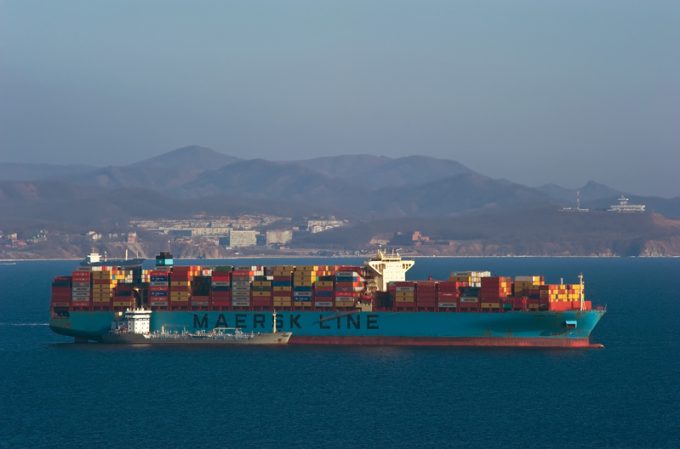Container spot rates have peaked as all major trades see prices fall
There was more evidence in this week’s container port freight markets that peak prices on ...
TFII: SOLID AS USUALMAERSK: WEAKENINGF: FALLING OFF A CLIFFAAPL: 'BOTTLENECK IN MAINLAND CHINA'AAPL: CHINA TRENDSDHL: GROWTH CAPEXR: ANOTHER SOLID DELIVERYMFT: HERE COMES THE FALLDSV: LOOK AT SCHENKER PERFORMANCEUPS: A WAVE OF DOWNGRADES DSV: BARGAIN BINKNX: EARNINGS OUTODFL: RISING AND FALLING AND THEN RISING
TFII: SOLID AS USUALMAERSK: WEAKENINGF: FALLING OFF A CLIFFAAPL: 'BOTTLENECK IN MAINLAND CHINA'AAPL: CHINA TRENDSDHL: GROWTH CAPEXR: ANOTHER SOLID DELIVERYMFT: HERE COMES THE FALLDSV: LOOK AT SCHENKER PERFORMANCEUPS: A WAVE OF DOWNGRADES DSV: BARGAIN BINKNX: EARNINGS OUTODFL: RISING AND FALLING AND THEN RISING

To improve schedule reliability, 2M partners Maersk and MSC are to avoid congested US west coast ports with two transpacific pendulum services.
From this week, the AE1/Shogun and AE6/Lion loops from Asia will turn in North Europe instead of going on to the US.
And to “facilitate the network adjustments”, the 2M said it would blank next week’s AE55/Griffin sailing from Asia to North Europe.
Maersk said the decision to discontinue the pendulum loops was in response to “the recent unprecedented market situation with severe port congestion and equipment limitations across global supply chains”.
Ships arriving at the South California container hubs of Los Angeles and Long Beach are regularly obliged to wait at anchor in the San Pedro Bay for up to two weeks for an available berth, making it impossible to recover schedules, and Maersk said it considered the change “critical to deliver improved schedule reliability”.
One UK-based NVOCC told The Loadstar today the 2M’s move “was not before time”, adding that “their schedules are shot to pieces”.
However, another shipper contact said he thought the 2M network changes might have “more to do with rates”, as spot rates from Asia to North Europe are currently double those for the US west coast.
“Some might say, after carriers got a tap on the fingers for increasing rates on the transpacific and appear to have stopped the rate hike, that they now want to sail vessels where the money is – or, alternatively, what’s the point of loading up a ship to sit for days or weeks on the US west coast?” said Nick Coverdale, founder of Hong Kong-based Agreefreight.
“Maybe it’s a mixture of both, personally I think it’s a fair business decision and in the customers’ best interests,” he added.
Founder and CEO of eeSea, Simon Sundboell agreed that carriers seemed to be serious about improving the industry’s dire schedule integrity. But, he told The Loadstar today, “it’s not just solved by the flick of a finger”, noting that the chronic port congestion on the west coast “did not seem to be letting up and is reverberating through the system”.
He added: “The 2M’s decision to disentangle their two pendulum services makes sense. It may require one or two more vessels to run separate services instead of the two pendulums, but with the USWC delays, that’s not a bad medium-term decision.
“The carriers know this bull market won’t last for ever and, while they will surely negotiate contracts hard right now, they also don’t want to be seen as completely disregarding their product quality promises.
“Will THE Alliance follow the 2M and do the same for its FP1 And FP2 pendulums?” he asked. “And while the Ocean Alliance’s ME4/PSW8 and Cosco’s AACI pendulums loop into the Middle-East and the Indian sub-continent, not Europe, they may also be tempted to look at those.”
Comment on this article